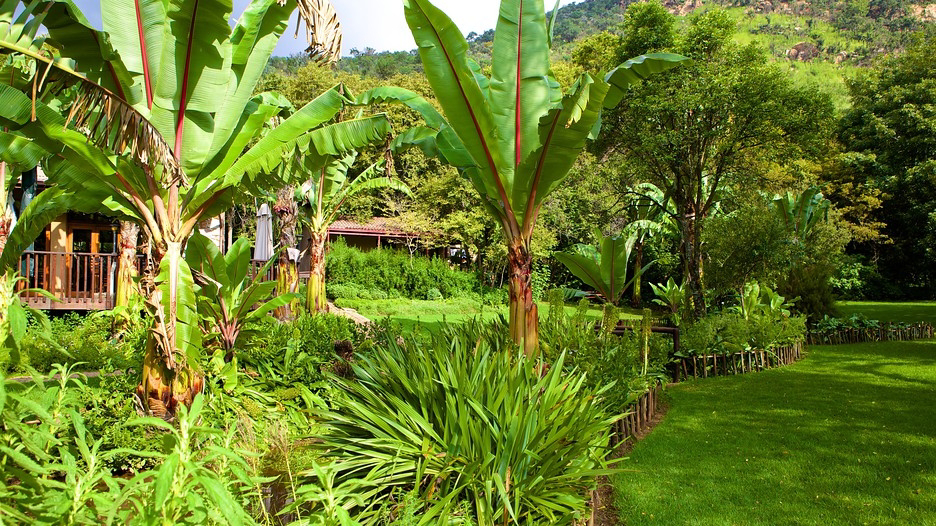Planning a trip to South Africa? Whether you're dreaming of a safari adventure, exploring vibrant cities, or relaxing on stunning beaches, you must first understand the visa requirements. Navigating through visa regulations can be daunting, but don't worry. This guide will break down everything you need to know in simple, straightforward language.
Understanding South Africa’s Visa Policy
South Africa, known for its rich culture and diverse landscapes, has a well-defined visa policy. The requirements for entering the country can vary significantly based on your nationality, the purpose of your visit, and how long you intend to stay.
Visa-Free Entry
First, let’s address the good news. Citizens of certain countries can enter South Africa without a visa for short stays. This list includes:
• United States
• United Kingdom
• Canada
• Australia
• Most European Union countries
For these travelers, stays of up to 90 days for tourism or business purposes do not require a visa. However, it's crucial to check the latest updates from the South African Department of Home Affairs, as visa-free policies can change.
Visa Requirements for Other Travelers
If your country is not on the visa-exempt list, you will need to apply for a visa before your trip. The type of visa you need depends on your visit's purpose. Here are the common categories:
1. Tourist Visa: For leisure and tourism purposes.
2. Business Visa: For attending meetings, conferences, or other business activities.
3. Student Visa: For those planning to study in South Africa.
4. Work Visa: For those seeking employment in South Africa.
5. Transit Visa: For travelers passing through South Africa to another destination.
Tourist Visa Requirements
A tourist visa is the most common type of visa for visitors. Here’s what you need to know:
Application Process
1. Complete the Application Form: You must fill out the BI-84 form. This form is available at South African embassies, consulates, or online.
2. Passport: Your passport must be valid for at least 30 days beyond your intended stay and have at least two blank pages for entry stamps.
3. Photographs: Provide two recent passport-sized photographs.
4. Proof of Financial Means: Show evidence of sufficient funds to cover your stay, such as bank statements or a letter from your employer.
5. Travel Itinerary: Provide details of your travel plans, including return or onward tickets.
6. Yellow Fever Certificate: Required if you are traveling from or through a yellow fever endemic area.
Supporting Documents
• Accommodation Details: Proof of hotel bookings or an invitation letter from a host.
• Medical and Travel Insurance**: Coverage for the duration of your stay.
• Proof of Employment**: A letter from your employer or proof of your business if self-employed.
• Visa Fee: Pay the non-refundable visa application fee.
Business Visa Requirements
A business visa is essential for those visiting South Africa for business activities. The requirements are similar to a tourist visa but include:
• Invitation Letter: A letter from the South African company you will be working with.
• Business Profile: Documentation about your employer and the nature of your business.
• Conference Details: If attending a conference, include the conference details and your registration.
Student Visa Requirements
If you plan to study in South Africa, you will need a student visa. The application process involves:
• Acceptance Letter: From the South African educational institution.
• Proof of Payment: Evidence that you have paid the tuition fees.
• Proof of Accommodation: Where you will be staying during your studies.
• Medical Insurance: Valid for the duration of your stay.
• Parental Consent: If you are under 18, a consent letter from your parents or guardians is required.
• Financial Support: Proof of sufficient funds to support yourself during your stay.
Work Visa Requirements
Obtaining a work visa can be more complex. There are several types of work visas, including:
• General Work Visa: For those with a job offer from a South African employer.
• Critical Skills Work Visa: For those with skills in high demand in South Africa.
• Intra-Company Transfer Work Visa: For employees transferred within the same company.
General Work Visa
• Job Offer: An official job offer from a South African employer.
• Proof of Qualifications: Copies of your qualifications and experience.
• Labor Market Test: Evidence that the employer could not find a suitable South African candidate for the job.
• Employment Contract: A copy of your employment contract.
Transit Visa Requirements
If you're passing through South Africa on your way to another destination, you might need a transit visa. Requirements include:
• Valid Passport: With at least one blank page.
• Confirmed Ticket: For your onward journey.
• Transit Visa Application Form: Completed and signed.
• Visa for Next Destination: If required by the country you're traveling to.
Applying for a South African Visa
Applying for a South African visa generally involves the following steps:
1. Check the Requirements: Visit the South African Department of Home Affairs website or contact the nearest South African embassy or consulate to confirm the specific requirements for your visa type and nationality.
2. Gather Documentation: Collect all the necessary documents.
3. Complete the Application: Fill out the relevant application form accurately.
4. Submit Your Application: Submit your application and supporting documents in person at the South African embassy or consulate. Some countries may offer online application submissions.
5. Pay the Fee: Pay the non-refundable visa application fee.
6. Wait for Processing: Visa processing times can vary, so apply well in advance of your travel dates. It usually takes between 5 to 15 working days.
7. Collect Your Visa: Once approved, you will need to collect your visa from the embassy or consulate.
Tips for a Successful Visa Application
• Double-Check Everything: Ensure all documents are complete and accurate.
• Apply Early: Start your visa application process as early as possible to avoid any last-minute issues.
• Follow Instructions: Carefully follow all instructions provided by the South African authorities.
• Stay Informed: Keep up-to-date with any changes in visa policies or requirements.
Common Reasons for Visa Rejection
Understanding why visas get rejected can help you avoid common pitfalls. Here are some frequent reasons:
• Incomplete Application: Missing documents or incorrect information.
• Insufficient Funds: Not demonstrating enough financial means to support your stay.
• Invalid Passport: A passport with less than 30 days' validity beyond your stay or not enough blank pages.
• Lack of Purpose Clarity: Not clearly stating the purpose of your visit or providing insufficient evidence.
• Previous Immigration Issues: Past visa violations or overstays in South Africa or other countries.
Post-Visa Approval: What’s Next?
Once your visa is approved, there are a few things to keep in mind:
• Check Your Visa: Verify that all information on your visa is correct, including dates and purpose.
• Health Precautions: Ensure you are up-to-date with necessary vaccinations, especially if traveling from a yellow fever zone.
• Travel Insurance: Comprehensive travel insurance can save you from unexpected costs.
• Plan Your Arrival: Make sure you have accommodation and transportation plans upon arrival in South Africa.
Traveling with Family
If you're traveling with family, each member, including children, needs a visa. Additional documents such as birth certificates and parental consent letters may be required for minors.
Extending Your Stay
If you find yourself wanting to extend your stay in South Africa, you must apply for a visa extension at least 60 days before your current visa expires. Extensions are not guaranteed and depend on your circumstances and visa type.
Application for Extension
• Complete Form: Fill out the form BI-1739 for a temporary residence visa extension.
• Supporting Documents: Provide reasons for the extension along with supporting documents.
• Pay the Fee: Pay the applicable fee.
• Submit Early: Submit your application well in advance to allow for processing time.
Leaving South Africa and Re-entry
If you plan to leave South Africa and return within your visa’s validity, ensure that your visa allows multiple entries. If not, you may need to apply for a new visa before re-entry.
Special Considerations for Long-Term Stays
For those considering long-term stays, whether for work, study, or other purposes, it's essential to understand the different long-term visa options and their requirements.
Permanent Residency
South Africa offers several paths to permanent residency for those who wish to make the country their home. These include:
• Work: After holding a work visa for a certain period.
• Business: Significant investment in a South African business.
• Relatives: Close family members who are South African citizens or permanent residents.
• Retirement: Meeting financial self-sufficiency requirements.
Critical Skills Visa
South Africa has a list of critical skills that are in high demand. Professionals with these skills can apply for a Critical Skills Visa, which may also lead to permanent residency.
Dealing with Visa Issues
If you encounter problems during the visa application process or your stay in South Africa, it's important to know where to seek help. Here are some resources:
• South African Department of Home Affairs: For visa and immigration issues.
• Embassies and Consulates: Your home country's embassy or consulate in South Africa can assist with emergencies.
• Legal Assistance: Immigration lawyers can provide advice and help resolve

































